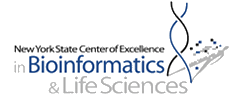Various Meanings of the term 'Ontology'
Philosophical Ontology: A branch of Western philosophy having its origins in ancient Greece in the work of philosophers such as Parmenides, Heraclitus, Plato, and Aristotle. Philosophical ontology is concerned with the study of what is, of the kinds and structures of objects, properties, events, processes, and relations in every area of reality. The term 'ontology' derives from the Greek 'ontos' ('being' or 'what exists') and 'logos' ('rational account' or 'knowledge'). From the philosophical perspective, 'ontology' is synonymous with 'metaphysics' as classically conceived. This philosophical sense of the term is what Jacob Lorhard had in mind when he coined the term 'ontology' (ontologia) around 1613, and this is also why Nathan Bailey's 1721 Oxford English Dictionary defined ontology as 'an Account of being in the Abstract'.
Domain Ontology: A representation of the things that exist within a particular domain of reality such as medicine, geography, ecology, or law, as opposed to philosophical ontology, which has all of reality as its subject matter. A domain ontology provides a controlled, structured vocabulary to annotate data in order to make it more easily searchable by human beings and processable by computers. For example, the Gene Ontology Project utilizes a domain ontology to provide a taxonomy and controlled vocabulary for describing genes and gene products. Domain ontologies benefit from research in formal ontology, which assists in making communication between and among ontologies possible by providing a common language and common formal framework for reasoning.
Formal Ontology: A discipline which assists in making communication between and among domain ontologies possible by providing a common language and common formal framework for reasoning. This communication is accomplished by (at least) the adoption of a set of basic categories of objects, discerning what kinds of entities fall within each of these categories of objects, and determining what relationships hold within and amongst the different categories in the domain ontology. Formal ontology draws heavily from the logic and methodology of philosophical ontology. Formal ontology is increasingly being applied in bioinformatics, intelligence analysis, management science, and in other scientific and business fields, where it serves as a basis for the improvement of classification, information organization, and automatic reasoning.
GLOSSARY of The New York State Center of Excellence in Bioinformatics & Life Sciences
Ontology: Recommended Use
In line with the definition put forward by Barry Smith, Waclaw Kusnierczyk, Daniel Schober, and Werner Ceusters in the article titled,"Towards a Reference Terminology for Ontology Research and Development in the Biomedical Domain",
the ORG uses the term in the following way:
An ontology is a representational artifact, comprising a taxonomy as proper part, whose representational units are intended to designate some combination of universals, defined classes, and certain relations between them. A REALISM-BASED ONTOLOGY is built out of representational units which are intended to refer exclusively to universals, and corresponds to that part of the content of a scientific theory that is captured by its constituent general terms and the interrelations between the universals denoted by these terms.Other Ontology Resources
- BARRY SMITH'S WEBSITE
- WERNER CEUSTERS' WEBSITE
- National Center for Biomedical Ontology
- National Center for Ontological Research
- OBO Foundry Project
- Ontology Outreach Advisory
- The University at Buffalo
- IFOMIS



